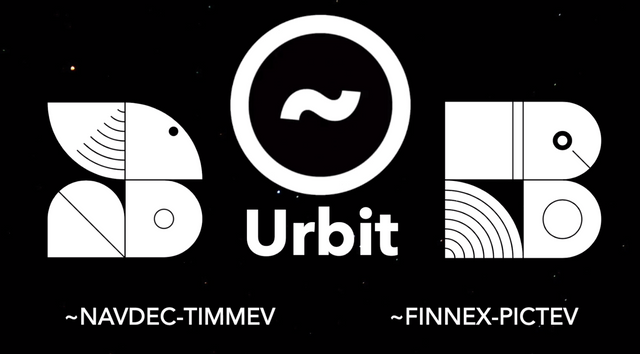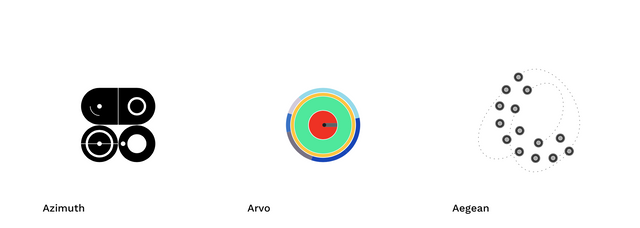The Urbit Identity Platform
Created by Tim Peters & Michael Finney

It doesn’t take a security specialist to recognize there are society-level issues compromising personal data privacy. Every breached company or incident within an institution reveals the need for improvement. Notably, it is often an individual’s poor attention to credentials that lead to an increased threat surface. This is going to take diligence to overcome and likely some new tools.
Entangled amongst the concerns related to privacy, security, identity, and sovereignty a project called Urbit seeks to reconcile some complications with personal data management.
The system certainly has an aura of mystery about it, with a little digging the value becomes clear. Urbit seeks to allow everyone to manage their own personal cloud server. Using independent virtual machines (VM) initiated and maintained by each endpoint user, the Urbit platform allows for peer-to-peer (P2P) access to data and other utilities. While the founder of the Urbit project has what can be described judiciously as possessing a contentious political stance, his effort to launch this identity platform has produced a valuable opportunity to users coming from anywhere on that spectrum.
A Digital Shipyard - Getting the Ship’s Components to Dock
Now, you might be asking “What exactly is Urbit?” or “Why should I value this?” - we intend to answer those questions in this section. 3rd-party services that we “trust” with our data or profiles increase our exposure to threats. However, as noted earlier, improved data management and privacy are going to require individuals step up to the plate to handle various aspects for their self.
“Urbit is a protocol, a language, an os, a database, and a digital identity.”
~ urbit
Security and privacy options available to users presently are at best, adequate.
Control and ownership, for typical users, aren’t always top priorities on various platforms and services. Urbit could be the solution that makes these arduous tasks a simple background operation.
Discovering Personal Servers
There are a considerable number of people who might wish to run a personal server. Currently, many personal servers are a Linux server on the public internet. Also, most of that personal cloud data is spread across numerous platforms, which become increasingly unstructured and difficult to manage as additional data is incorporated.
Features are often not all available upon one platform, somewhat forcing users to choose between options, utilize multiple services, or migrate for the experience they desire.
What options are available to users that provide security, privacy, ownership and control under one platform?
Urbit is attempting to become that solution, providing the capability to self-host all the mechanisms necessary for a suite of content and identity tools within one system.
For example, if you are creating a website to publish articles or other media, Urbit could be a viable solution for these operations while keeping data interactions under your control, and not some third party service.
An Ecosystem of Identity Written in the Stars
Introduction to Urbit Identities
“If IP addresses were cryptographic property, the Internet could have funded its own development with its own address space.”
~ urbit
Urbit utilizes a three-layer stack of elements to assign an identity address space. The layers are referred to as Azimuth, Arvo, and Aegean. They work cooperatively to produce a user’s experience and network access. Azimuth acts as an identity as well as a network address for Arvo which is an operating system (OS) and peer-to-peer (P2P) network while Aegean determines what social experiences are accessible.
Points may have different designations within Urbit which implies their tier and relationship to the entire system. They are Galaxies, Stars, and Planets. Galaxies issue Stars, which issue Planets. The above chart illustrates their recursive nature.
Final Preparations for Launch
Urbit is an excellent solution for the problem of identity management in the information age when computing has been distributed to nearly every facet of our lives. It is thorough but in that focus on detail may compromise its value by erecting too high a barrier to entry. Yes, tech savvy users are paying attention and believe this tool provides unique functionality. However, unless some of these hurdles are jumped in the background for users, they may be unlikely to adopt the extra measures necessary to utilize this platform. That doesn’t seem improbable, as there are plenty of background mechanisms making modern life possible that are out of view, but the direct-to-consumer model of releasing assets to their community hasn’t seemed to lead to a deep developer base or notable corporate integration at present.

The Urbit identity platform coordinated with something akin to an RSA token could be a great solution for corporate environments with staff that need remote access to a large number of facilities and resources in the field or for environments in which users aren’t tethered to particular workstations or machines.
We feel it is important to mention Urbit’s relationship with the Ethereum blockchain. While we don’t endorse the reliance on that platform longterm, it provides a chance to explore the efforts necessary to decentralize Urbit’s existence. Our opinion is that utilizing a tokenized distributed ledger is the correct trajectory to achieve sovereign identity management.
Watch this article in a video
In our followup piece we intend to walk you through the process to get Urbit setup and running.






